For graceful movement in the wind, turn to the Cape reed family.

If you’re looking for real plant elegance, turn to members of Restionaceae, one of the three main fynbos families. Many of the showiest and most popular species will grow happily in different climatic regions far away from their natural habitat. Another characteristic, which can create confusion and make them difficult to identify, is that restios have male and female flowers on separate plants. But that is not a problem for the gardener, as we will simply enjoy double the pleasure if we can have both sexes.
When clever researchers at the Kirstenbosch Botanical Gardens found out that plant-derived smoke is a natural stimulant to germinate fynbos seeds, and especially those of restios (previously very difficult to propagate!), they did the horticultural world a huge favour. Large numbers of these once difficult to propagate plants are now readily available for us to plant and enjoy.
What do restios need?
The most basic needs for good growth are full sun (although some species can tolerate light shade), sandy, very well drained soil, ample water when in their active growing season and until they have become established, and good air circulation around the plants. And just like other fynbos species, they don’t like their root systems to be disturbed.
Growing tips
Planting time – Restios grow actively in autumn, spring and early summer. Plant them when your climate’s natural rain cycle starts.
Planting hole – Prepare large holes and enrich the excavated soil with a few spades of quality compost and a handful of bone meal or organic fertiliser pellets. Don’t use any chemical fertilisers. If the soil is clayey, add a few spades of sharp river sand or grit to improve drainage.
この記事は The Gardener の July 2018 版に掲載されています。
7 日間の Magzter GOLD 無料トライアルを開始して、何千もの厳選されたプレミアム ストーリー、9,000 以上の雑誌や新聞にアクセスしてください。
すでに購読者です ? サインイン
この記事は The Gardener の July 2018 版に掲載されています。
7 日間の Magzter GOLD 無料トライアルを開始して、何千もの厳選されたプレミアム ストーリー、9,000 以上の雑誌や新聞にアクセスしてください。
すでに購読者です? サインイン

Fixing things in 2025!
One should start a new year by sitting firmly on one's throne, not breaking it and falling off!
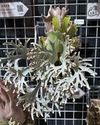
Silver staghorn ferns at platinum prices
When we think of a staghorn fern, Platycerium bifurcatum, which can be found in many South African gardens, usually comes to mind.

Tic Tac Toe
Keep children (and adults) busy for hours with this stylish game for the patio.
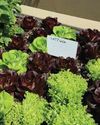
Let's change the way we think about food
Healthy food is all about preparing fresh ingredients in the simplest (yet tasty) way. Today's balanced diet includes lots of fiber, plenty of fruits and vegetables, and proteins in the form of meat, like lean pork. Keep it interesting, and you can't go wrong.

Grow Wayne's favourite things
Midsummer is when your garden is at its lushest. It's always playtime in the garden, and whether it's lying under a tree or finding more stuff to grow, gardens are our safe space for self-expression and joy.

THE BEST OF SUMMER
Summer annuals offer more than just colour, texture, and variety in a garden.
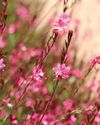
PLANT A COLOUR explosion!
Angelic angel wings and a dwarf morning glory can keep colour all around you from spring to autumn, and will be back to do it all over again next year...
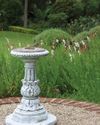
SAVING TIME in the garden
Just like Jamie Oliver can teach us to cook a meal in 15 minutes, there are ways to garden in 15 minutes or less. Here are some of our top time-saving tips to make gardening easier, quicker and more fun.
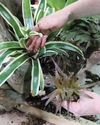
FUN PROJECTS for the New Year!
If you want a wow factor for your next party, try revamping a piece of driftwood into something amazing with these few steps.

Evolving for LONGEVITY
A continuously transforming garden has longevity, which is certainly true for the garden at Brahman Hills in the Midlands of KwaZulu-Natal.